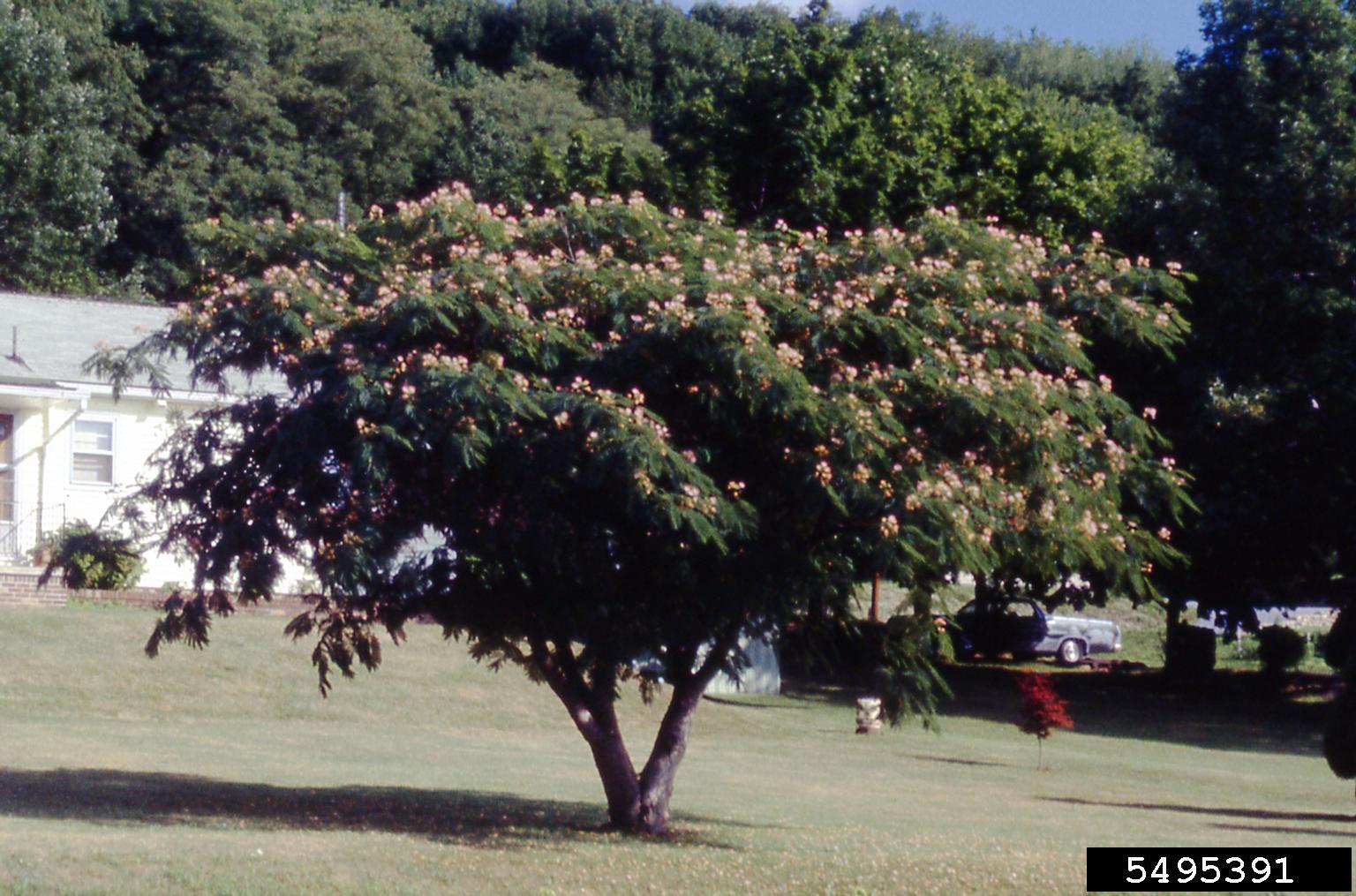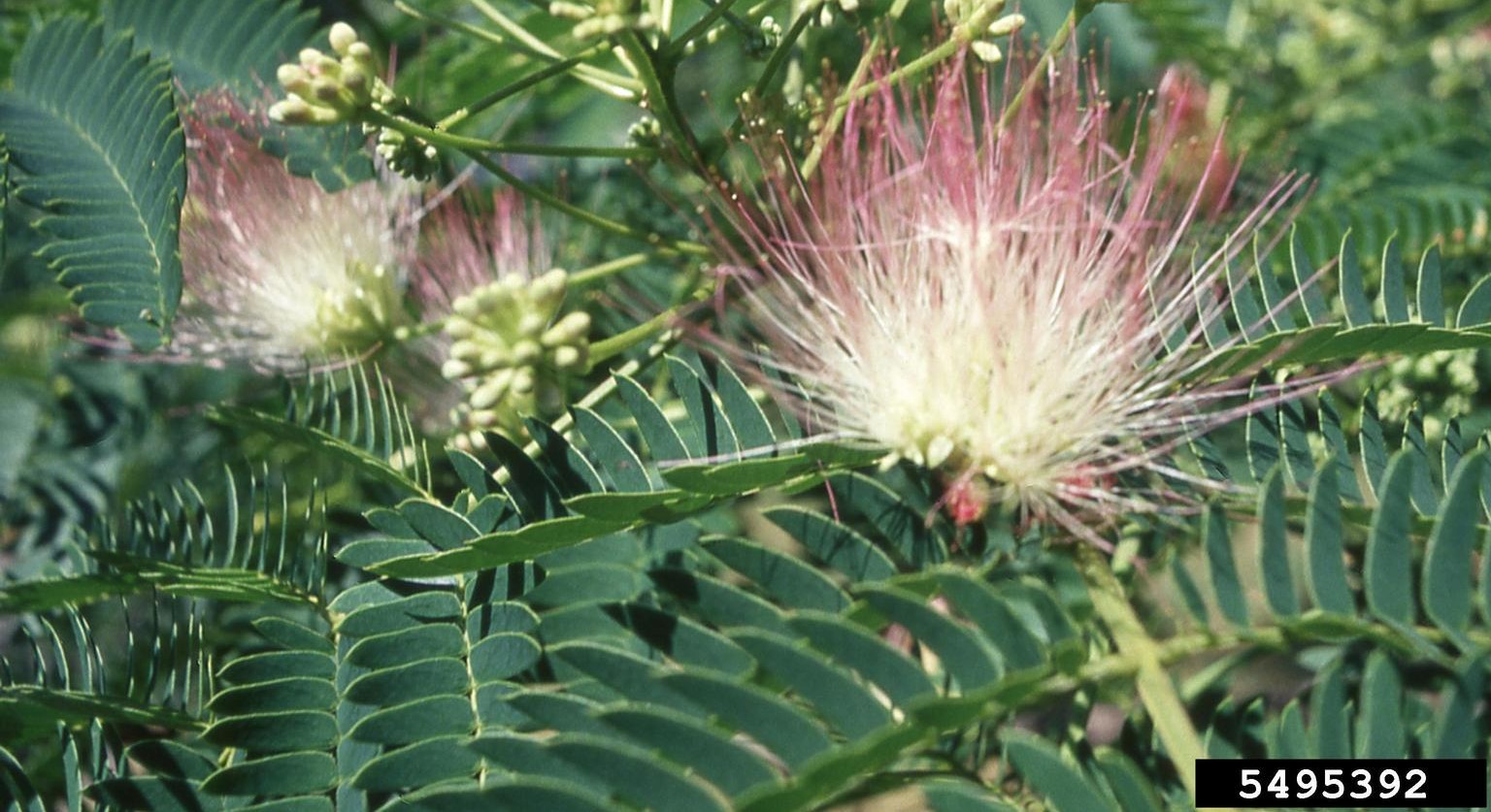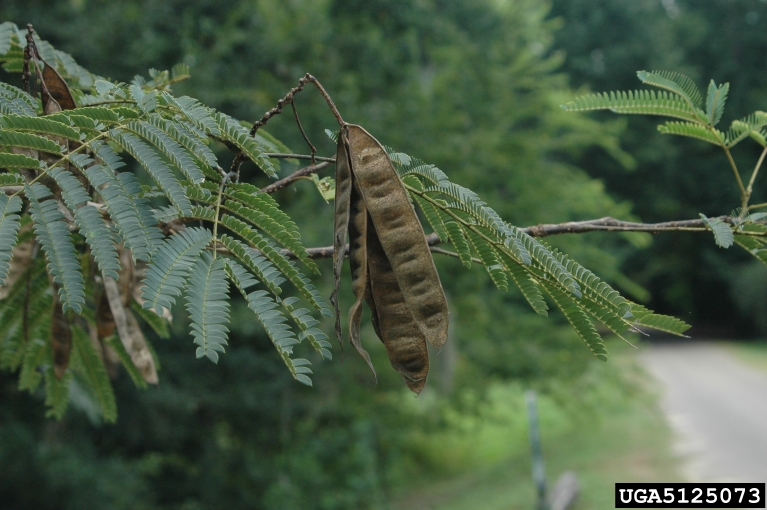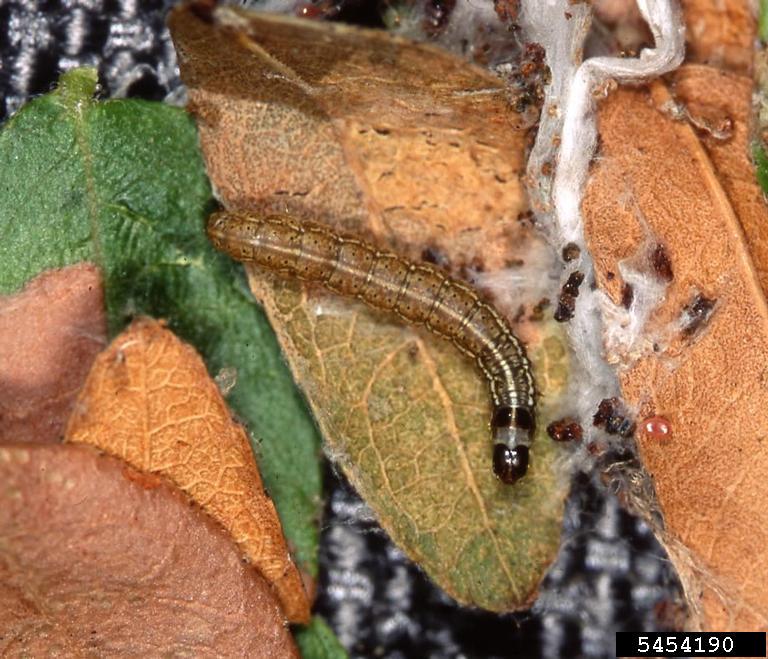Tree Highlight: Mimosa
Persian silk tree (mimosa)

The Persian silk tree (scientific name Albizia julibrissin), also known as mimosa, is a non-native tree from Asia, that is often found in cities and on the edge of woods of Eastern US. It is an invasive tree that can displace native trees and shrubs. The Persian silk tree is a fast-growing and short-lived tree of medium size (10-50 ft tall) with large bi-pennate leaves and flowers made of pompom-like clusters of silky pink threads that appear from May to July. Fruits are flat legumes that are dispersed by wind, water, and animals.
Did you know?
-
Its leaflets folds together at night and for this reason is called the "sleeping tree" in its native range.
-
It was first introduced into the U.S. in 1745 as an ornamental tree.

Uses and benefits
Ornamental: The Persian silk tree is cultivated as an ornamental tree due to its fragrant and showy flowers, and tend to spread becoming invasive.
Traditional Medicine: In traditional Chinese medicine extracts from the tree are used to as a remedy to alleviate anxiety.
Environment: Over the next 20 years, if taken care of, a Persian silk tree that has a diameter of 5 inches will offset 1,728 miles worth of CO2, absorb enough stormwater to fill 480 bathtubs, and remove an amount of pollution from the air – in gaseous and particulate form – equivalent in weight to 12 smartphones! Learn more at: https://mytree.itreetools.org/

Wildlife
Sweet Sweet Nectar: The Persian silk tree flowers are a source of nectar for bees, butterflies, moths and even hummingbirds.
Dangerous Seeds: Seeds contain a neurotoxin and can be toxic to livestock and dogs if ingested.
Mimosa webworm: The mimosa webworm, a non-native moth, feed on the Persian silk tree leaves as (well as native trees like the honey locust) by wrapping leaflets together with webbing.

Click here to learn more!
Images sourced from forestyimages.org
